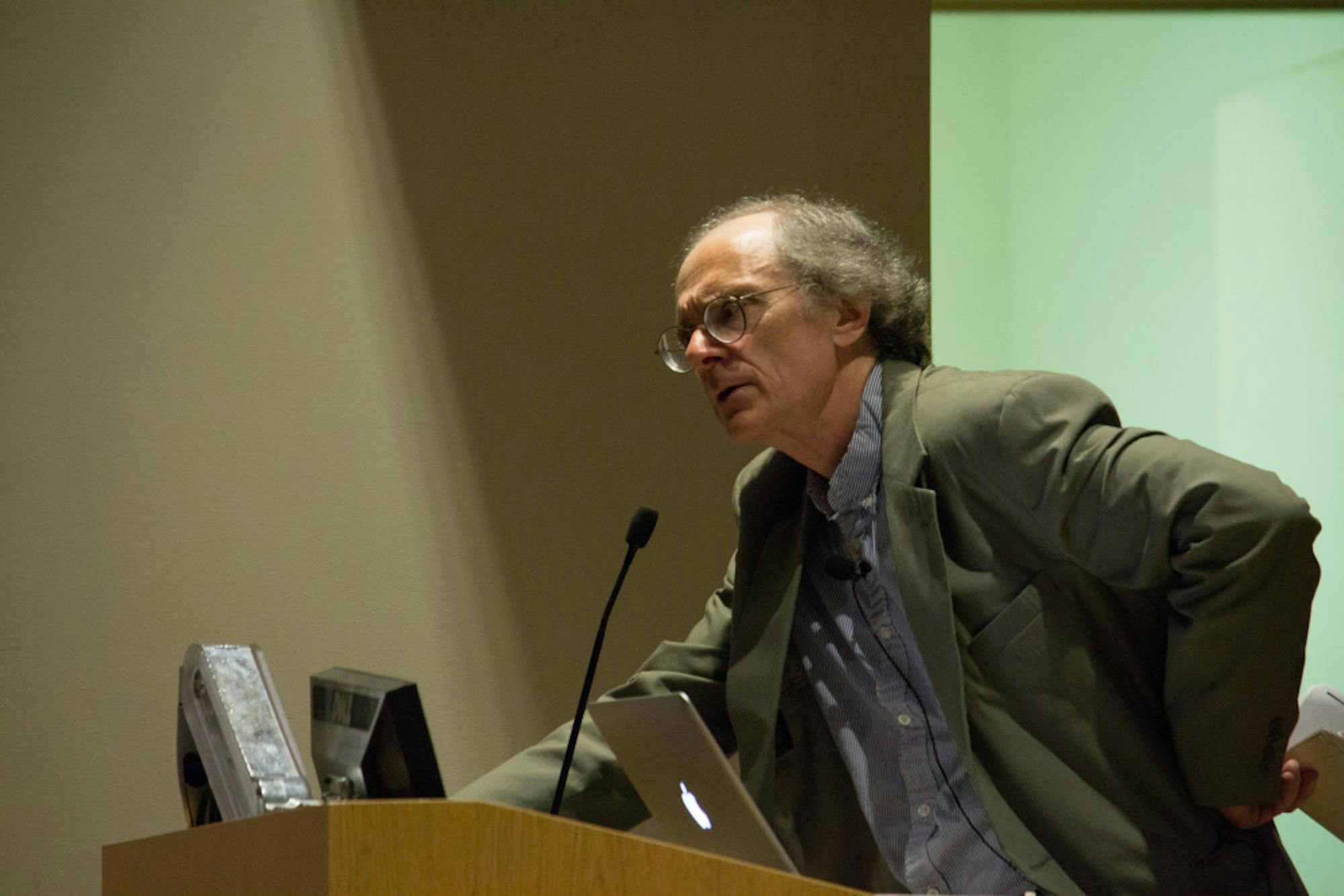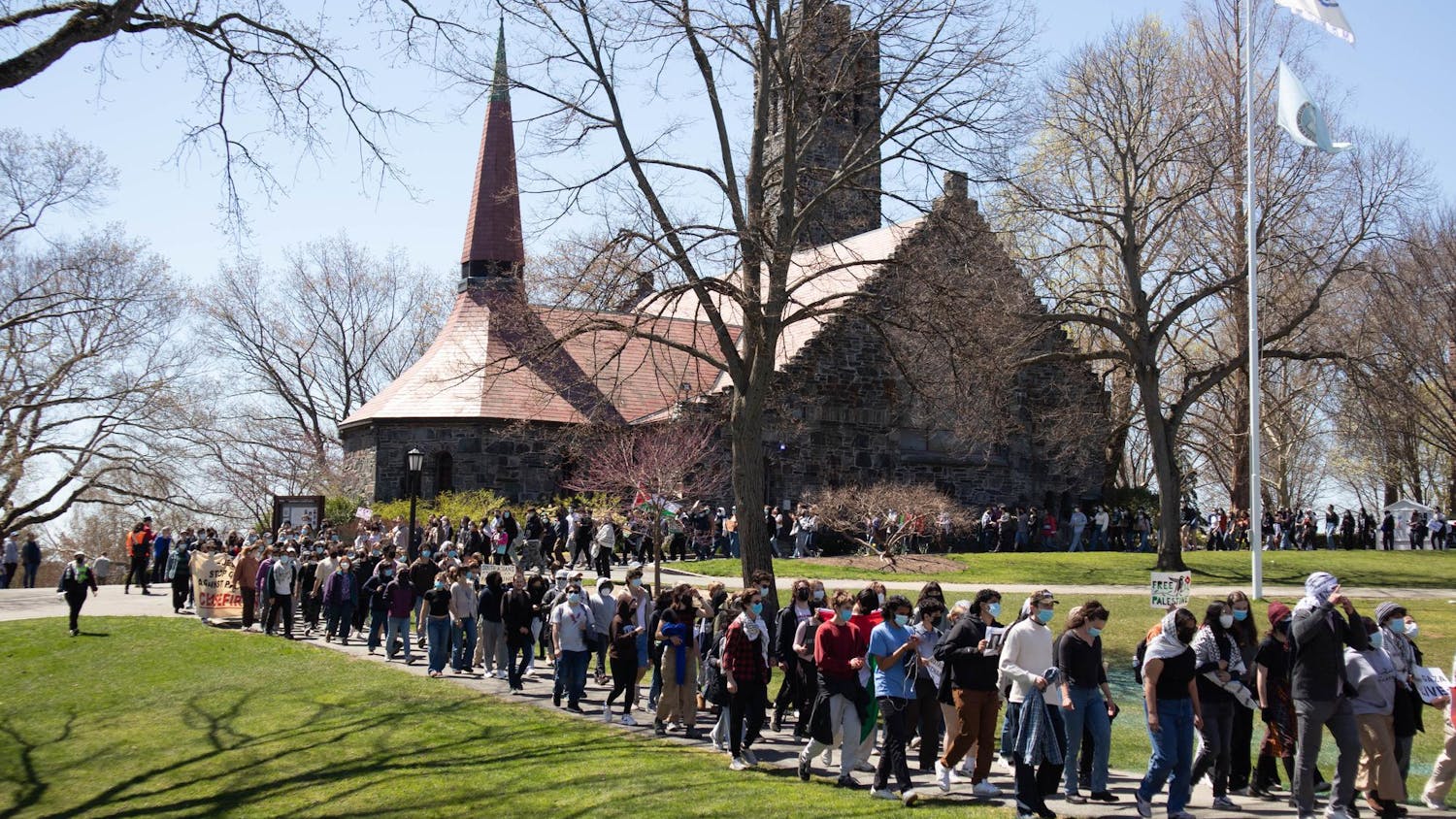An audience of about 60 gathered to hear Mark Feeney, a Pulitzer Prize-winning art critic at The Boston Globe, speak at the second installment of the second annual Osher Lifelong Learning Institute’s “Free Thinkers” series in Barnum Hall last night.
The "Free Thinkers" series began with an Oct. 8 talk, "Advice to the Egyptians (and other Arabs) from the Founding Fathers," by Pulitzer Prize-winning historian Gordon S. Wood and will end with a Nov. 5 talk from actress, director and author Tina Packer, who will speak about women and Shakespeare. The series is open to current members of the Osher Lifelong Learning Institute at Tufts, but remaining tickets are released to Tufts students, faculty and staff 15 minutes before each lecture, according to David Fechtor, director of the Osher Institute.
Feeney's lecture, entitled "Nixon at the Movies," centered around his book, "Nixon at the Movies: A Book about Belief" (2004), which explores former President Richard Nixon and the film industry.
“[My research explores] the fascinations of Richard Nixon’s movie-watching history,” Feeney said.
Feeney said that the connection between Nixon and the film industry became apparent when Nixon could no longer escape the Watergate scandal and watched the 1966 film "A Man of All Seasons."
“This was a film about a political figure who was punished for standing by his beliefs, which is probably how Nixon saw himself in the midst of the scandal -- a victim of a changing system,” he said.
Feeney also shared various facts about the infamous former president. Nixon’s favorite film was "Around the World in 80 Days" (1956), and he also very rarely watched foreign movies, seeing only five in his over 500 viewings, Feeney said.
According to Feeney, Nixon once said, “I like my movies made in Hollywood."
Feeney also talked about why thinking about Nixon as a movie watcher makes him a more relatable figure.
“[Ronald] Reagan was the movie star as president; [John F.] Kennedy was the president as movie star," he said. "Nixon was the president as movie fan."
Feeney explained that Nixon was very comfortable as a film viewer.
“In the dark, no photographer could ever catch him off guard," he said. "He could finally...relax. He recognized the appeal of the screen in that you could gaze at it, but it would not return that gaze.”
Feeney said that everyone can empathize with the appeal that movies give people.
“[The] particular seductiveness [of cinema] was all the vividness and pageantry of life without any of the human complications," he said. “With that in mind, how could Nixon not love the movies?”
Correction: The previous version of this article misstated the title of Feeney's lecture and originally stated that the lecture series is free and open to the public when the lectures are only open to members of the Osher Lifelong Learning Institute, with additional tickets released to the Tufts community before events. Changes have been made to the article to reflect that.






